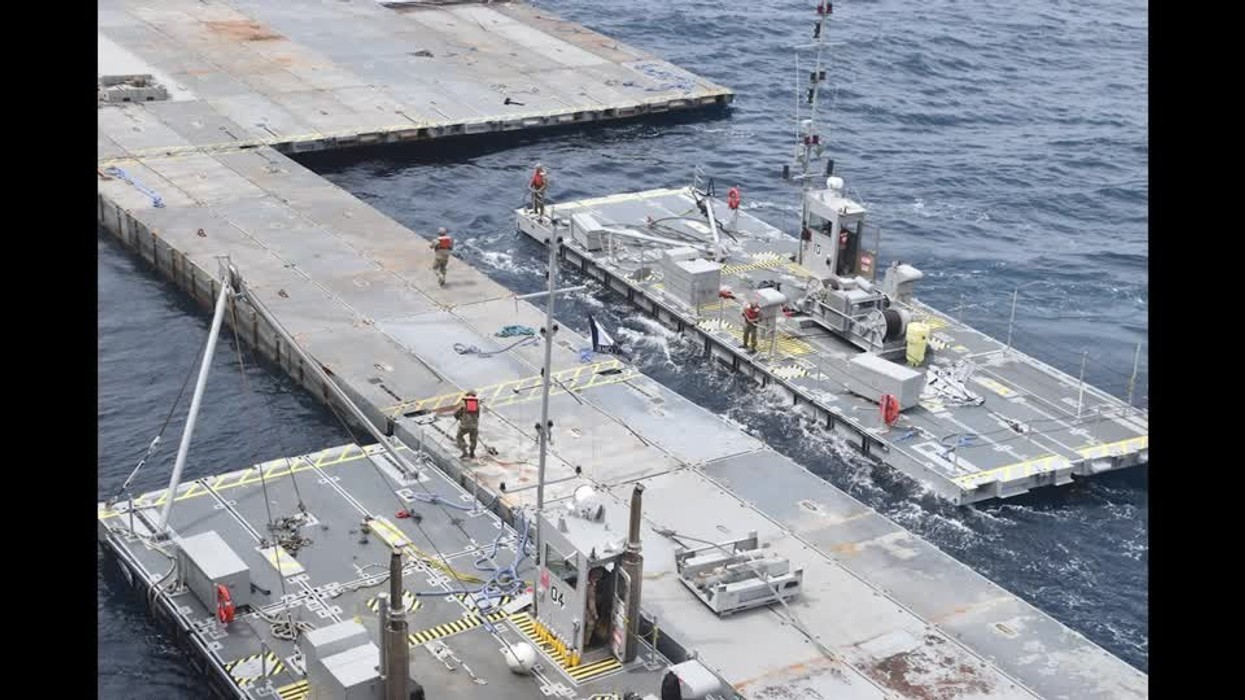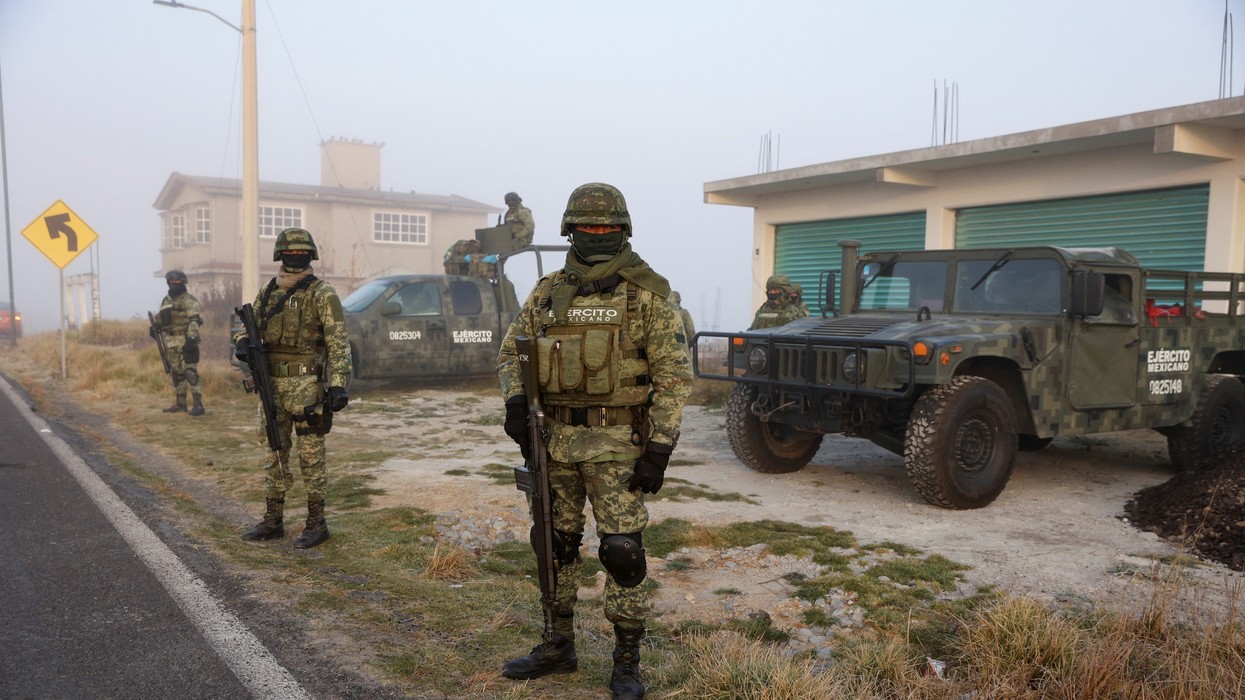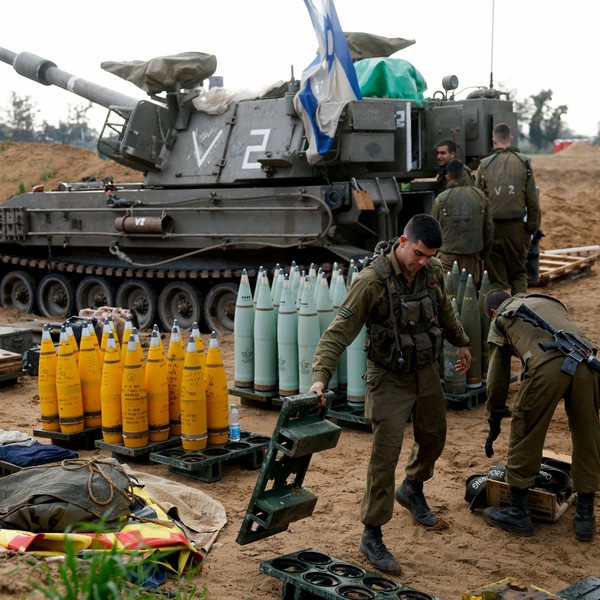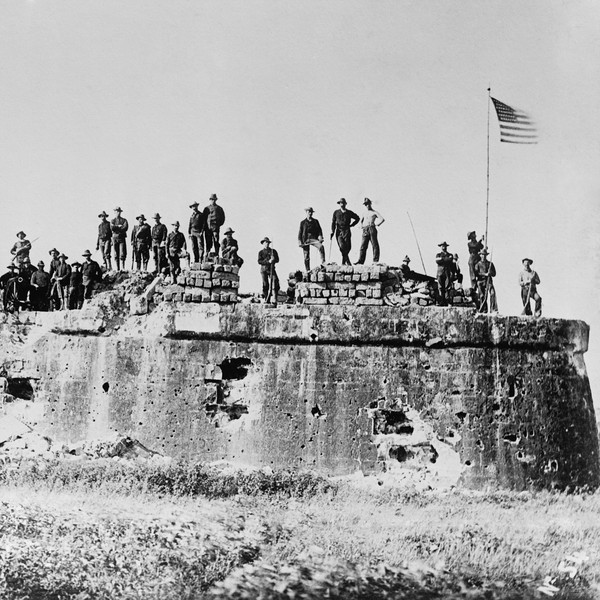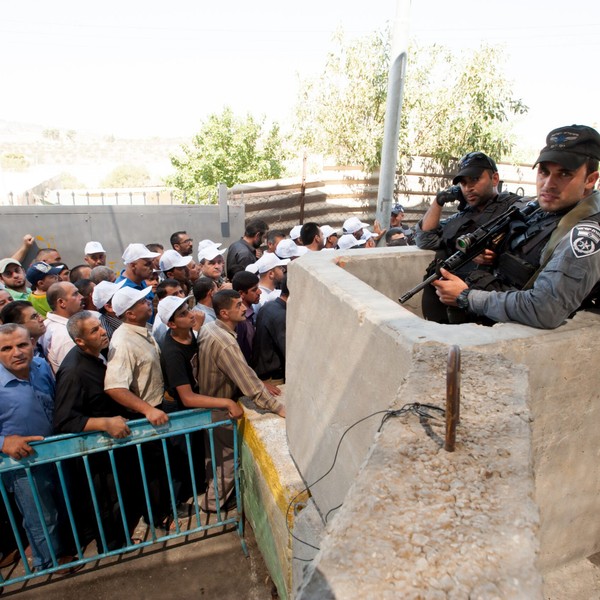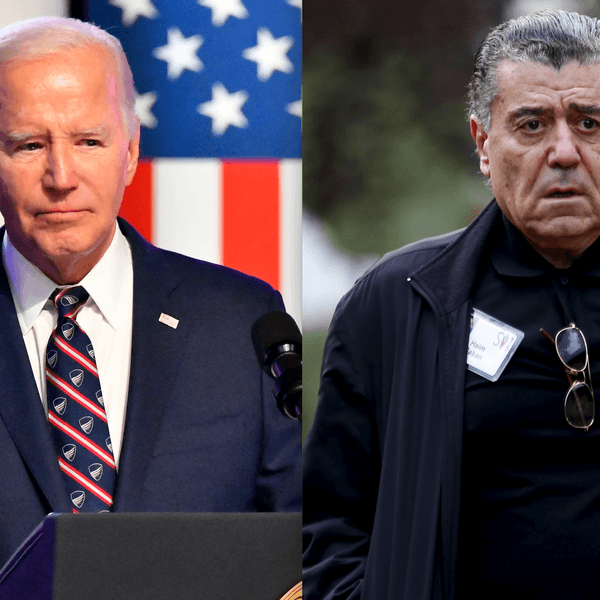Speaking in a virtual panel last Thursday, two influential scholars of international relations expressed skepticism of the alleged rise of "great power competition" as a new paradigm for U.S. foreign policy.
The scholars, Stephen Walt of the Harvard Kennedy School and Barry Posen of the Massachusetts Institute of Technology, also argued that Washington has put itself at a strategic disadvantage with its military overextension and virtually unconditional support for often-troublesome allies in the Middle East.
“We have special relationships with Egypt, Saudi Arabia, Israel, and maybe Jordan, and these countries can pretty much do whatever they want with unconditional American backing,” said Walt. “Meanwhile we pretend that we're never going to talk to Iran, which means that the former take us for granted, and that we have no influence with the latter.”
Both Walt and Posen, well-established leaders of the "realist school" in international relations, were speaking before a forum sponsored by the Washington-based Middle East Institute. Despite the framing of this discussion — "The Middle East in an Era of Great Power Competition" — both Walt and Posen appeared to reject the notion that U.S. foreign policy has moved decisively towards a framework of great power competition.
“If you look at where the Trump administration is, we still have troops in NATO deterring Russia, we have troops in the Middle East despite all of Donald Trump's statements that he doesn't want to do nation-building, and we still have troops in Afghanistan,” said Walt. “So there's certainly been changing style, but the overall thrust of American foreign policy has actually changed rather less than many people believe.”
The scholars also concurred that Russia and China are unlikely to aggressively pursue hegemony in the Middle East. Even with its proclaimed victory in Syria, Walt noted, Russia is still playing a basically defensive game in the Middle East and on the world stage, rather than significantly increasing its influence. China, on the other hand, could reasonably be expected to seek greater power in the region, but so far has not.
“China has been willing to have a rather detached relationship towards the Middle East, quite possibly because they realize that its strategic importance may actually be going down, and because they've watched the American experience there for the past 20 plus years and they've seen this as an enormous quagmire where the United States has actually weakened its overall position,” Walt said. “You can argue that Beijing is playing a very sensible game here, which is to let the United States continue to expend resources in the Middle East for no good purpose while it stays out.”
The real strength of Russia and China’s approaches towards the Middle East, Walt said, is their willingness to have healthy diplomatic relations with all nations in the region, in contrast to the American adherence to unconditional alliances and seemingly permanent enmities.
“Russia and China talk to everybody — they talk to the Iranians, they talk to the Israelis, they talk to the Saudis, they talk to the Egyptians, and that’s how a country maximizes its influence.” Walt explained. “We do the exact opposite — we talk to some countries and back them to the hilt, and don't talk to the others.”
Posen and Walt concurred that the American military presence in the Middle East greatly outmatches the region’s importance, and that it ought to be promptly reduced. The scholars differed, however, on what a smart approach to the region would require of the United States — both agreed that the primary U.S. interest in the Middle East lies in preventing the rise of a hegemonic power there, but Posen emphasized that this was an extremely unlikely prospect even without U.S. involvement to prevent it.
“There is no obvious candidate for military hegemony in the region,” Posen explained. “Two of the principal powers in the Arab world were Iraq and Syria, which are basically gone as military powers. Egypt is preoccupied with an insurgency, and Iran hasn't modernized its conventional forces in a decade-and-a-half. My very strong inclination is to not just pull our military power out of the region, but to say to most of the client states, ‘other than your self-inflicted wounds you are pretty secure, at this point you manage your internals, we are gone.’”
Posen further explained that the reasons for the Middle East’s strategic importance to the United States, and to the world at large, were rapidly diminishing.
“The one thing that made this part of the world interesting is oil, and oil is not only not scarce, it's a poison,” said Posen. “Over the next 20 years or so, all industrial societies should be trying to wean themselves off this poison, so it should not be the job of the American military to subsidize a low price for poison that comes from the Middle East.”
Still, neither scholar expressed much hope that the U.S. would adopt such an approach in the near future, regardless of the outcome of this year’s presidential election. Referring to the Trump administration’s approach as one of “illiberal hegemony,” Posen predicted that a potential Biden administration’s foreign policy would differ in style, but not significantly in substance.
“The mood music is going to change,” Posen said. “I'm sure in a Biden administration, they will try to restore whatever they think our position in the Middle East is — they'll go back to using some more liberal tools while they also keep using the martial tools as well.”
Still, both recognized that the present global crisis brought on by the COVID-19 pandemic offers an opportunity for major powers to re-evaluate world order: to embrace great power competition, or to seek out a more cooperative approach to shared challenges.
“If I were a statesman with power, I would be looking to ask ‘is this maybe the last moment we have to think about order, and do we want an order that is simply low-grade perpetual great power competition, or do we want to think about whether there is some more cooperative way to manage things?'” Posen suggested. “If that exists, it's not because we're going to make it out of the U.N. or some other international institution — it’s because sometimes, even great powers have managed to cooperate to organize vital security questions.”
Event details and full video of the discussion are available from the Middle East Institute.


